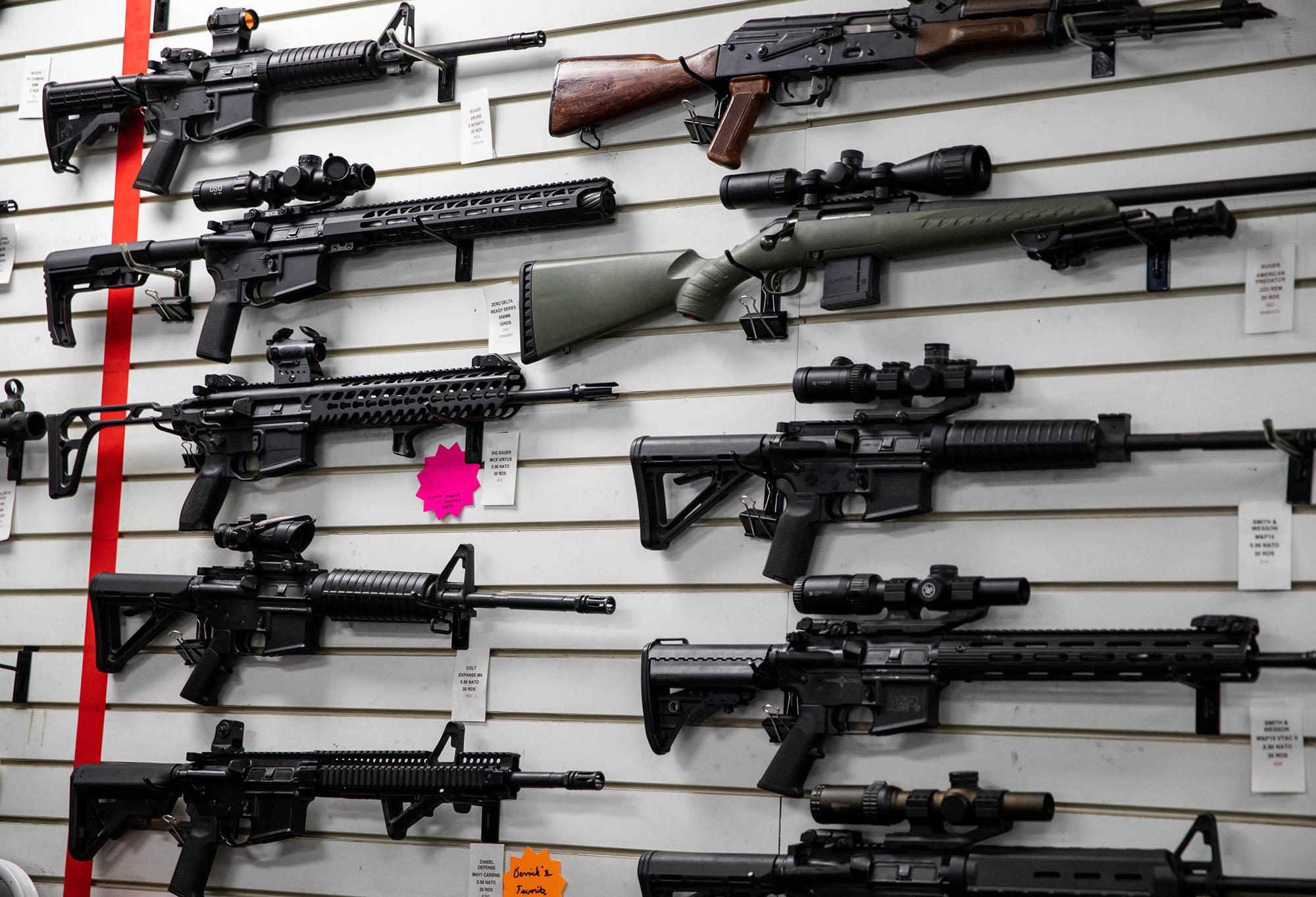The debate surrounding gun control in liberal states is a multifaceted issue that touches upon the Second Amendment, mental health, drug decriminalization, and their interconnections. While proponents argue that stricter gun regulations are essential to curb violence, critics assert that these rules disproportionately affect law-abiding citizens, fail to deter criminals, and may not address the root causes of gun-related problems. In this article, we will delve into the various dimensions of this debate, including the impact of gun rules on responsible gun owners and the effectiveness of AR-15 bans in reducing violence. Additionally, we will explore the complex connections between mental health, drugs, crime, and gun control.
The Argument Against Liberal State Gun Rules
Disarming Law-Abiding Citizens:
One of the primary concerns regarding gun rules in liberal states is that they disproportionately affect law-abiding citizens. These regulations often make it more challenging for responsible individuals to acquire firearms for self-defense and other legitimate purposes. The Second Amendment of the United States Constitution guarantees citizens the right to keep and bear arms, and many believe that stringent gun control measures infringe upon this fundamental right.
Failing to Deter Criminals:
Critics argue that criminals are not deterred by strict gun control laws. Instead, these laws may inadvertently create a lucrative black market for illegal firearms. Criminals, by definition, do not abide by the law, and they are often resourceful enough to obtain guns through illegal means, such as theft or underground networks. As a result, many argue that gun control measures primarily disarm law-abiding citizens while leaving criminals relatively unaffected.
AR-15 Bans and Mass Shootings:
Another contentious issue is the effectiveness of AR-15 bans in preventing mass shootings. Proponents of such bans argue that these firearms are frequently used in mass shootings and that restricting their availability can save lives. However, critics contend that mass shootings are more commonly carried out using handguns, not rifles like the AR-15. They argue that banning a particular type of firearm may not significantly impact the overall rate of mass shootings.
Manipulated Statistics:
Some critics also raise concerns about the manipulation of mass shooting statistics. They argue that changes in reporting criteria and definitions have contributed to an apparent increase in the number of mass shootings. While it is essential to address the tragedy of mass shootings, it is equally important to have accurate data to formulate effective policies.
The Complex Connection between Mental Health, Drugs, and Gun Control
The debate on gun control in liberal states is further complicated by the interconnected issues of mental health, drug decriminalization, and drug-related problems.
Mental Health and Violence:
It is essential to acknowledge the link between mental health and gun violence. While the vast majority of individuals with mental health conditions are not violent, untreated or undiagnosed mental health issues can occasionally lead to violent acts. Addressing mental health issues should be a priority in reducing gun violence, as this can prevent potential perpetrators from accessing firearms.
Drug Decriminalization and Mental Health:
One aspect that often gets overlooked is the potential impact of drug decriminalization on mental health. Liberal states have moved towards decriminalizing certain drugs, arguing that it reduces the burden on the criminal justice system. However, leniency in drug policies can contribute to increased drug use, addiction, and mental health problems.
The Connection between Drugs, Crime, and Mental Health
Drug Trafficking and Violence:
The issue of drug trafficking, particularly along the U.S.-Mexico border, is a significant concern. Lax border control and the presence of drug cartels result in the illegal flow of drugs and firearms. The profits from this illicit trade fuel cartel activities, creating an environment of violence and instability.
Drug-Related Mental Health Issues:
Substance abuse, often associated with drug use, can lead to severe mental health problems. Drug addiction can exacerbate underlying mental health conditions and increase the likelihood of violent behavior. Liberal drug policies may inadvertently contribute to the rising incidence of mental health issues tied to drug use.
Homelessness and Mental Health:
In some liberal states, the decriminalization of drugs has coincided with an increase in homelessness, which further exacerbates mental health problems. Homelessness often leads to a cycle of addiction and mental illness, making it challenging for individuals to receive the help they need.
Conclusion
The challenge of gun control in liberal states encompasses a wide array of issues, including the preservation of individual rights, public safety, mental health, drug decriminalization, and the effectiveness of specific regulations. Striking a balance between these concerns is a complex task that requires informed discussions, consideration of potential unintended consequences, and exploration of alternative strategies for reducing gun violence.
To effectively address this pressing issue, policymakers must navigate these intricate connections while upholding the principles of the Second Amendment and safeguarding public well-being. It is through comprehensive, evidence-based policies and open dialogue that we can hope to find common ground and develop solutions that respect both individual rights and the safety of society as a whole.
